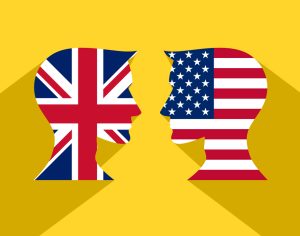Despite being amidst a pandemic, comparisons are already being drawn between the success rates of how different countries have managed the Covid-19 outbreak. Comparisons such as: how quickly countries shut down; the financial support provided to affected workers and businesses; what institutions remained open to the public; death toll; and usage of virus testing, are just some of the details pored over. Whilst some countries are easing restrictions, with the world watching to see what measures are being taken to keep the virus from spreading like wildfire, others remain in lockdown. For SMEs with an international workforce, it’s important to keep abreast of changes globally, to ensure that both their staff and business reputation are adequately protected.
With such significant variations globally in how different countries are managing Coronavirus, SMEs with a global workforce need to be aware that staff in different countries may need to follow varying guidance. Reputable sources such as the World Health Organisation and local governments provide a good starting point with understanding what is going on country to country, helping businesses to tailor advice accordingly.
Differing reactions to the virus
Countries around the globe have taken different approaches to dealing with the pandemic. Sweden took a relaxed approach to lockdown measures, keeping schools for under-16s open and allowing pubs and restaurants to remain open. Whereas in certain regions of Colombia, people were only allowed outside on particular days, in accordance with numbers on their national identity cards. And in a bid to discourage social gatherings, South Africa banned the sale of alcohol.
Countries are keen to avoid a devastating second wave, or more, of Covid-19 and are taking different approaches to easing lockdown restrictions as a result. Wearing face masks in public places became compulsory in Zimbabwe for example. Restarting economies and alleviating pressures experienced by people during lockdown, when it comes to mental and physical wellbeing, are some of the reasons behind countries relaxing restrictions. Italy opened parks and public spaces in May, Spain allowed children to play outside after a six-week lockdown and Switzerland permitted children under 10 to hug their grandparents to support mental wellbeing. Keeping on top of developments globally is important if SMEs are to advise their staff correctly to support their health and wellbeing. This can mean taking advantage of newly instated freedoms, whilst continuing to comply to government rules and regulations.
Variations in easing lockdown
Where lockdown restrictions are being lifted, it is being done so gradually, and SMEs need to understand the terms and conditions according to different countries that have been set by authorities in local regions, keeping on top of guidance issued from each region. For example, in Germany restrictions were lifted – with small shops and secondary schools reopening in early May, but wearing masks was made mandatory on public transport and in shops in most regions. Other countries, such as Singapore and Australia, are using contact-tracing, to keep on top of Covid-19 numbers – helping to control the spread of the virus.
Even regionally, there are differences within countries and continents that businesses need to be aware of. For example, in New South Wales, Australia, up to 10 people were allowed to “dine in” at restaurants, cafes and bistros. Yet at the same time in Victoria, Australia, cafes and restaurants were not allowed to seat diners. Within the United Kingdom, there have been differences regarding working from outside the home within the four countries. Restrictions began to ease in England first, with people being encouraged to go back to work, if their work could only be done in the workplace – while restrictions remained in Northern Ireland, Scotland and Wales, where it was stipulated that work should be done at home where possible, with the exception of key workers such as healthcare professionals.
Latest information
SMEs with a global workforce need to keep up-to-date with country-specific changes related to Coronavirus. In the UK, we’re accustomed to the Government providing a daily briefing to the public, with the latest announcement about Coronavirus management. Other countries have used similar ways to brief their countries, and it’s important that employers access the most accurate and relevant information country to country, from reputable sources such as local governments and the World Health Organisation. This can also help quash any misinformation from rumour mills and give employees peace of mind that they’re following the correct guidance.
The news is awash with how differe
Share via:








































